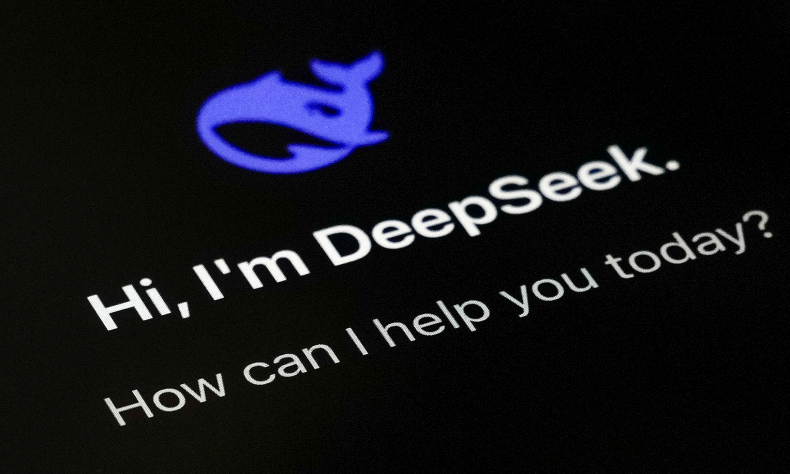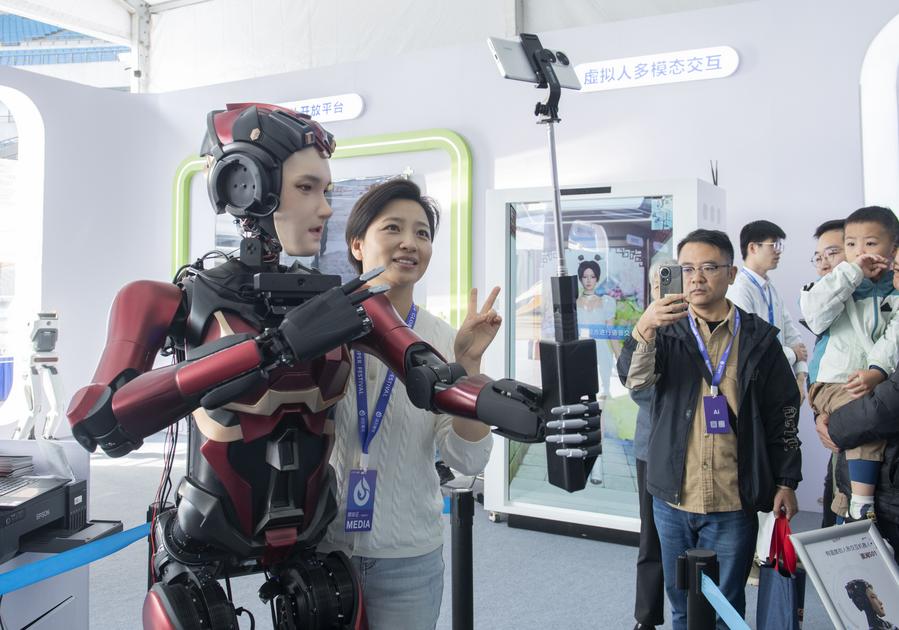Old Myth, New Legend

DeepSeek’s stunning release of an AI model that can rival ChatGPT at a fraction of the cost and time shows the power of Chinese innovation and lifts up the Global South.
The release of a new artificial intelligence (AI) model, ironically, evokes a biblical memory. What has transpired in the past few days echoes the biblical story of David versus Goliath, in which the massive and well-armed Goliath is defeated by the comparatively puny David, who comes to the battle with only his staff and sling.
The modern-day equivalent of David that has set the entire world talking is Chinese company DeepSeek, whose advanced open-source language model DeepSeek V3 provides an alternative to OpenAI’s ChatGPT with better efficiency and a fraction of the cost. The emergence of the AI David has stunned Silicon Valley and shaken Wall Street within days of its release, causing the value of U.S. tech stocks to plummet by nearly a trillion dollars.
There are very few examples of such events occurring within the tech industry nowadays as major breakthroughs are increasingly far and few between, entailing years if not decades of work and astounding amounts of resources. Or that’s what Silicon Valley thought.
With the launch and rapid rise of ChatGPT in 2022, AI became a trending buzzword and the push for AI dominance saw billions upon billions of dollars spent on funding, resources, and computing power. To bolster their lead, the Western “free world” imposed stringent restrictions on access to core technologies and chips essential to developing these technologies.
U.S. tech plutocrats were present in the front row at the U.S. presidential inauguration in January where President Donald Trump heaped praise upon them and announced that the private sector, represented by OpenAI, Softbank and Oracle, would invest up to U.S. $500 billion to build AI infrastructure in the U.S. The atmosphere was one of a victory parade.
But the victory became hollow as DeepSeek revealed that it had attained competitive parity with OpenAI’s most advanced model, using substantially less resources, with slower hardware due to the restrictions, and in considerably less time. The team also released a detailed research paper laying out the combination of breakthroughs and sheer ingenuity that led to the feat. The stunning parity of Deepseek-V3 with OpenAI’s most advanced model at a fraction of the time, cost, and resources speaks volumes about the level of talent and ingenuity of the DeepSeek team, comprising China’s new generation of homegrown talent and institutions.

The event is momentous due to multiple reasons. The first is that it dispels the notion that the Silicon Valley has “won” the AI race and was firmly in lead in a way that could not be challenged because even if other countries had the talent, they would not have similar resources. Besides, access to the most advanced American-made chips is given only to the United States’ close partners and allies. This control, people thought, would ensure total U.S. dominance.
If, by some miracle, any non-American company managed to achieve a breakthrough, the assumption was that it would take ages. However, DeepSeek has not only achieved the impossible but also, in a move straight out of Sun Tzu’s The Art of War, said its model is both free and open-source. This is a game changer on a tectonic level whose ramifications will ripple across time. It will alter the trajectory of AI development and application.
OpenAI, contrary to its name, is anything but open. Its valuation was based upon two things: its proprietary trained large language model, and ownership of the vast compute resources – the hardware and software needed for processing data, running applications, and tackling problems.
DeepSeek-V3 is open-source, which means anyone can download and run it, train it, and tweak it as they please, according to the available hardware. By making it a public good meant to benefit all, DeepSeek has effectively re-written the AI rulebook and redrawn AI’s technological landscape.
DeepSeek is also collaborating with Huawei, another Chinese tech giant, and their new AI-focused Ascend series of chips, a milestone in China’s budding AI hardware industry. As ex-CEO of Intel and tech industry veteran Pat Gelsinger said, “DeepSeek will help reset the increasingly closed world of foundational AI model work. Thank you DeepSeek team.”
Something else is of great importance. Now the Global South, their academics and their universities can also harness AI through unfettered access to an advanced model. This will have a profoundly positive impact, as previously the Global South was at the mercy of Western technology oligarchs. Now reaping the benefits of AI is within the grasp of the developing and underdeveloped world. A brave new world awaits.
Hassan Arshad Chattha is a Pakistan-based consultant focusing on technology and its impact on human civilization.
 Facebook
Facebook
 Twitter
Twitter
 Linkedin
Linkedin
 Google +
Google +










